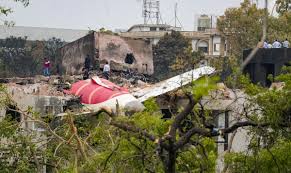Need to use Ahmedabad crash as ‘act of force’ to build a safer Air India: Tata group chairman

Ahmedabad, June 17 – Tata Sons Chairman N Chandrasekaran has called the recent Air India incident at Ahmedabad a “forceful reminder” to accelerate safety reforms. Referring to the event as an “act of force,” he urged immediate action to build a safer and more reliable Air India.
During a leadership session within the Tata Group on Monday, Chandrasekaran stressed that the group will not overlook the lessons from the incident. He said the focus must now shift toward creating a safety-first culture across every level of the airline.
A Wake-Up Call for Change
The incident involved an Air India aircraft narrowly avoiding a collision on the runway. Initial reports point to ground miscommunication as the cause. Though no injuries occurred, aviation experts have labeled it a major safety lapse.
“This is a defining moment for Air India,” said Chandrasekaran. “The Ahmedabad scare must push us to act boldly and swiftly. It’s a wake-up call, not just a one-off scare.”
Overhauling Air India’s Safety Standards
Since acquiring Air India in 2022, the Tata Group has made several changes. These include upgrading the fleet, improving customer service, and merging operations with other group airlines.
However, the Ahmedabad incident exposed serious gaps in safety systems. Chandrasekaran said, “We are committed to fixing every weak link—from training to communication to technology.”
New Measures on the Way
The group plans to launch a dedicated Safety Command Centre within 30 days. This unit will report directly to top management. It will oversee safety checks, pilot training hours, and ground control procedures.
An internal source said the group is also investing in AI-based tools to detect safety risks earlier. These tools will help improve both decision-making and emergency response.
Culture Over Compliance
Chandrasekaran emphasized the need for a deeper shift in thinking. “Safety cannot be a checklist. It must become a habit, a mindset, a part of our DNA,” he said. “Every Air India employee must feel accountable, from the cockpit to the tarmac.”
He also stressed that the airline should not only meet safety rules but exceed global expectations.
National and Global Oversight
The Directorate General of Civil Aviation (DGCA) has launched an inquiry into the Ahmedabad event. Experts expect stricter audits and tighter controls going forward. International aviation bodies, including IATA, may also review Air India’s current safety record.
Former pilot Capt. Ravi Joshi said, “Tata is making the right call by treating this as a turning point. If they follow through, it could change India’s aviation image.”
Winning Passenger Trust
Chandrasekaran said Air India must earn the trust of passengers with consistent performance. He added that the airline’s expansion into Europe and the U.S. depends on proving its global readiness.
“We cannot expect loyalty. We must earn it every day, with every flight,” he said. “Safety is not optional—it’s essential.”
The Road Ahead
The Tata Group has already committed over $2 billion toward modernizing Air India. This includes technology upgrades, new aircraft, and talent development. The Ahmedabad incident, though troubling, might serve as the push needed to complete this transformation.
Whether Air India succeeds depends on turning this crisis into lasting change. And as Chandrasekaran noted, “Great institutions are not built in comfort. They are built in moments like these.”






